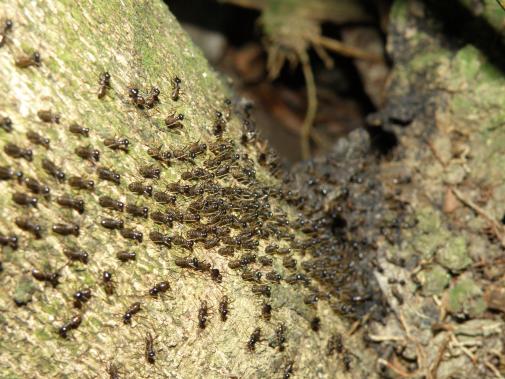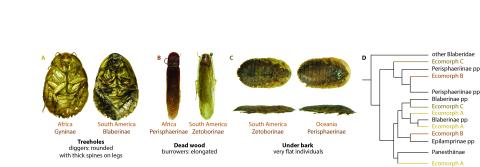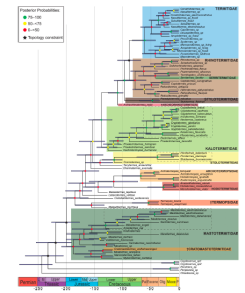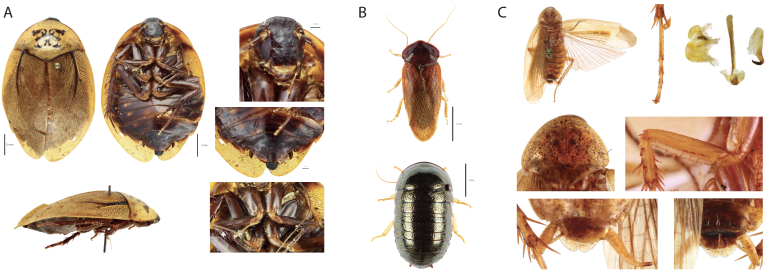
Frédéric LEGENDRE



45 rue Buffon
CP50
75005 Paris
Responsabilités actuelles :
Responsabilités passées :
Responsabilités actuelles :
Responsabilités passeés :
Chargé de conservation des collections de Dictyoptera, Plecoptera, Trichoptera, Mecoptera et Psocodea (2008-)

Drawer demonstrating the morphological diversity of cockroaches flanked by collection drawers of Mantodea and Mecoptera
My research deals with the evolution of insects. I reconstruct phylogenies before using them as a historical reference to test evolutionary hypotheses. Following this phylogenetic approach, I investigate the evolution of social behavior in termites and cockroaches (Insecta : Dictyoptera), test biogeographic and diversification hypotheses, and study the ecomorphology of cockroaches.

Nasutitermitinae, Soldiers and workers in Singapore
In collaboration with E. Bornberg-Bauer (University of Münster, Germany), this project is supported by ANR and DFG. The PhD project of Juliette Berger is instrumental for this project.

The aim of Barbara Bignon’s PhD project is to establish a new dialogue between the physics of granular media (soil, sand, etc.) and behavioral observations of burrowing cockroaches, in order to address fundamental questions about the biology and physics of movement in granular environments for these insects.

Combining tip-dating and diversification analyses, Corentin Jouault and Manuel Brazidec (Phd students) want to decipher the factors that have driven the diversification of insects.


A. Phenacisma peltata Karsch, 1896 B. Perisphaerus flexicollis (Walker, 1868) C. Rhabdoblatta pluriramosa (Karny, 1915)
Brut (2024) : Le fascinant cannibalisme sexuel des mantes
France Culture (2020) : Des insectes et des hommes : s’organiser et cohabiter
Zeste de Sciences (2019) : Faut-il être mignon pour survivre ?
Arte Snapschat (2019) : Faut-il sauver les pandas ?
France Info (2019) : Pourquoi les animaux moches sont plus menacés que les autres ?
The Conversation (2018) : Quand l’oiseau fait de l’ombre à l’insecte
RFI (2017) : Nouvelle-Calédonie : des scientifiques pour la protection de la biodiversité
Sciences & Vie (2016) : Comment les cafards peuvent-ils résister aux radiations des essais nucléaires ?
ARTE (2013) : L’odyssée papoue
Wapiti (2011) : La reproduction chez les insectes
Despite the many advances of the genomic era, there is a persistent problem in assessing the uncertainty of… Molecular Phylogenetics and Evolution vol. 200, , p. 108177 ISBN: 1055-7903 Publisher: Elsevier Type: 10.1016/j.ympev.2024.108177